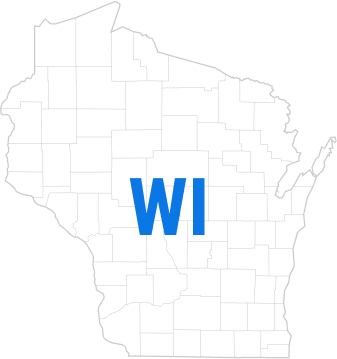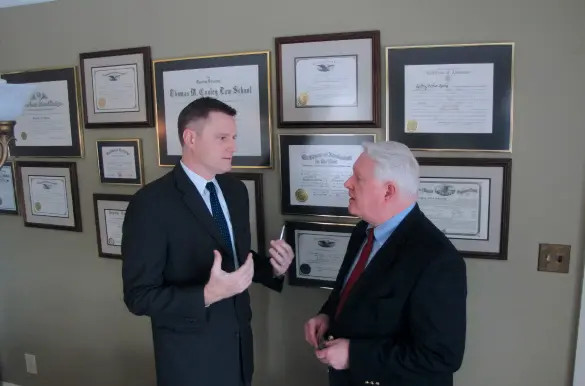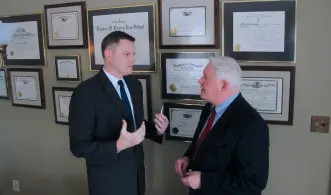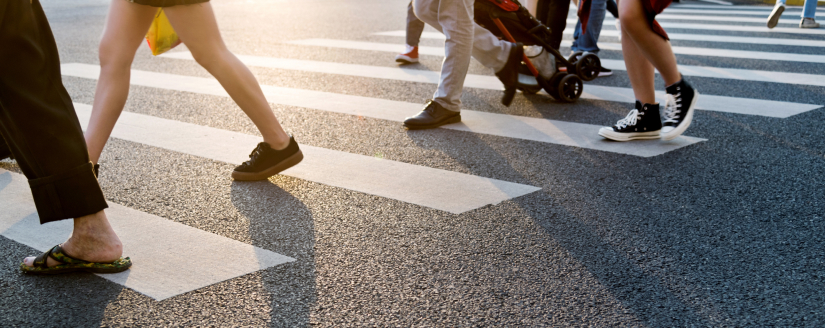
Experienced Pedestrian Accident Lawyers Serving Wisconsin
Pedestrians are among the most vulnerable road users because they have nothing to protect them from the force of a traffic collision. What’s more, motorists often overlook them or fail to exercise proper care when driving in areas with heavy foot traffic, increasing the risk of preventable accidents. Even though motorists are frequently to blame for resulting collisions, the person on foot usually suffers the brunt of the consequences.
If you were hit by a reckless, careless, or otherwise negligent driver in Wisconsin, they could owe you compensation for the harm they caused you. This could include money for your medical bills and lost wages while you’re unable to work, as well as for the pain and suffering you experienced and other losses. Let the Schwaba Law Firm demand this compensation on your behalf.
Andrew Schwaba has been protecting injured Wisconsinites and helping them get their lives back on track since 2010. His reputation for aggressive representation and success has made him well-known throughout Green Bay, Marinette, Appleton, and the Northeast Wisconsin region. Let Andrew put his reputation to work for you, taking on the at-fault motorist and their insurer and demanding they pay you fair compensation.
Don’t let an accident define your future. Reach out to Schwaba Law Firm today to find out how a pedestrian accident lawyer in Wisconsin can help you pursue the money you deserve from the person who hurt you.
Why Choose Schwaba Law Firm?
The outcome of your pedestrian accident case is too important to leave to chance. Instead, trust the seasoned professionals with Schwaba Law Firm to protect your rights and pursue fair compensation on your behalf. We have a considerable track record of major verdicts and settlements in even the toughest cases, and we know how to beat the big insurance companies at their game. What’s more, our Wisconsin pedestrian accident lawyers won’t charge you a fee unless we win your case first. Don’t delay – reach out to us today.
Benefits of Hiring a Wisconsin Pedestrian Accident Law Firm
The aftermath of a pedestrian accident can be painful, financially draining, and emotionally overwhelming. While you could be owed money, pursuing this compensation on your own could prove difficult. Instead, turn to a walking accident lawyer at Schwaba Law Firm for help. Andrew Schwaba can:
- Investigate the accident to determine everyone who could owe you money
- Work with experts like healthcare providers and accountants to calculate the full extent of your losses and what fair compensation entails
- Timely file demand letters and other paperwork to keep your pedestrian accident claim on track
- Negotiate aggressively with liable insurance companies, demanding they pay you every cent you’re owed
- Pursue your case through to trial if the liable parties won’t make a fair settlement offer
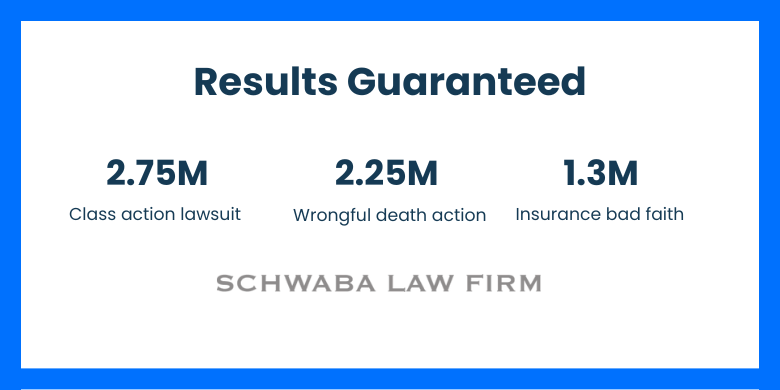
Main Causes of Pedestrian Accidents in Wisconsin
While many different factors can contribute to a pedestrian accident, many are the result of the same handful of underlying causes, including the following:
- Careless or Reckless Motorists – Many accidents occur due to reckless behavior from drivers, such as speeding, distracted driving, failing to yield at crosswalks, and not following traffic signals or signs.
- Poor Visibility – According to the National Safety Council (NSC), about two-thirds of fatal pedestrian accidents occur in dark light. Conditions like heavy rain, fog, or snow can reduce visibility and increase the risk of accidents. Low light conditions during dawn, dusk, or night can also make it hard for drivers to spot pedestrians. Obstructions such as parked cars or trees can further impede visibility.
- Intoxication – Accidents are more likely to occur when drivers or pedestrians are under the influence of alcohol or drugs. The NSC estimates that 41 percent of all fatal pedestrian accidents involved alcohol impairment. Impaired individuals have slower reaction times and reduced motor control, and they often make risky decisions that can lead to accidents.
How Many Pedestrians Are Killed in Wisconsin Annually?
Pedestrian accidents are a serious and growing problem in Wisconsin. WisDOT reported that in one recent year:
- There were 1,137 pedestrian crashes.
- Fifty of these collisions proved fatal.
- Over 1,000 pedestrians suffered injuries.
- About a quarter of those injuries were described as serious.
Steps to Take After a Pedestrian Accident
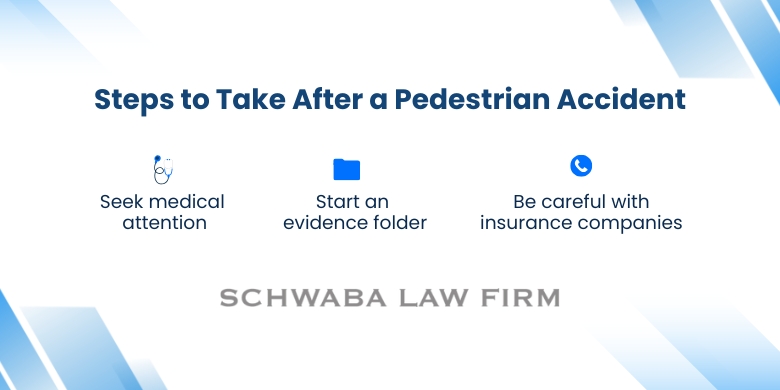
If you’ve been hurt in a pedestrian accident in Wisconsin, it’s important that you take certain steps to protect your health and safeguard your right to compensation. Here’s what you can do to lay the groundwork for a successful pedestrian accident claim:
- Seek medical attention if you have not done so already, and inform your healthcare providers that you were in a pedestrian accident. A doctor can identify any injuries you’ve suffered and begin treating them. Furthermore, the medical records of your visit will connect your injuries to the accident.
- Start an evidence folder. Start by writing down your recollections of the accident while your memory is still fresh. Add to it any bills you’ve received for your medical treatment, communication you’ve had with your employer if you’ve been unable to work, and receipts from other accident-related expenses.
- Be careful what you say to any insurance companies that contact you. They’re looking to protect their profit margins, not help you. Politely decline to give any recorded statements until you’ve had a chance to talk to a lawyer.
Finally, contact an experienced Wisconsin pedestrian accident lawyer at 855) 724-9222 and ask for a free case review. Bring your evidence folder with you.
What Compensation Can I Recover After a Wisconsin Pedestrian Accident?
If you were injured in a pedestrian accident in Wisconsin that someone else caused, the at-fault party could owe you money for your:
- Medical Expenses – Compensation can cover all medical costs related to your injury, including immediate expenses like emergency room visits as well as future medical costs for ongoing treatment and rehabilitation.
- Lost Wages and Earning Capacity – If the pedestrian accident injury caused you to miss work or diminished your future earning ability, you can seek compensation for these losses. Lost wages can also include things like benefits, bonuses, tips, and commissions.
- Pain and Suffering – This legal term describes the physical discomfort and emotional turmoil associated with your injuries. These are non-economic in nature, making them more difficult to prove without experienced legal help.
- Loss of Enjoyment of Life – This term describes diminished happiness caused by your inability to participate in your favorite activities because of your injuries.
- Property Damage – If the accident also damaged your personal belongings, you may be entitled to recover the cost of repair or replacement.
Remember, each case is unique, and your potential compensation will depend on the specific circumstances of your pedestrian accident and the losses you incurred. Discuss your situation with an experienced Wisconsin pedestrian accident lawyer to learn more.

